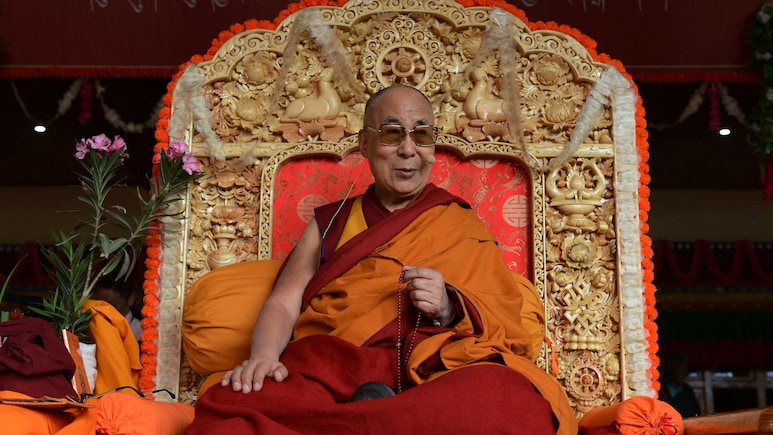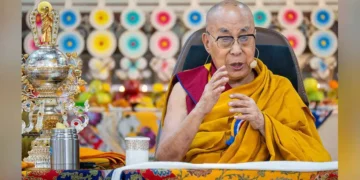The Dalai Lama outlines his succession plans amid growing interest from China, raising global attention about the future of Tibetan spiritual leadership.

According to Tibetans, he is believed to be the 14th reincarnation of the Dalai Lama. His statement was released in anticipation of his 90th birthday on July 6.
The exiled spiritual leader of Tibet announced today that he will appoint a successor after his death, offering reassurance to Buddhist followers worldwide that the centuries-old tradition of the Dalai Lama will carry on. This pivotal decision brings hope to Tibetans who have long worried about a future without a guiding figure, and to global supporters who view the Dalai Lama as a powerful symbol of peace, compassion, and the continued fight to preserve Tibetan culture under Chinese rule.
According to Tibetan belief, Tenzin Gyatso is the 14th reincarnation of the Dalai Lama.
He is widely admired by his followers for his unwavering efforts to promote greater autonomy for Tibet — a sprawling, high-altitude region in China comparable in size to South Africa.
He, along with thousands of other Tibetans, has lived in exile in India since Chinese forces suppressed an uprising in Lhasa, the Tibetan capital, in 1959.
The Nobel Peace Prize-winning Buddhist leader, known for his charisma, had previously stated that the institution of the Dalai Lama would continue only if there was popular demand.
Today, he revealed that over the past 14 years, he has received numerous appeals from the Tibetan diaspora in exile, as well as from Buddhists across the Himalayan region, Mongolia, and parts of Russia and China — all earnestly urging the continuation of the Dalai Lama institution.
“I have received messages through various channels from Tibetans inside Tibet, all making the same heartfelt appeal,” he said in a video message at the opening of a gathering of religious leaders in Dharamshala, Himachal Pradesh, where he has lived for many years.
“In response to these requests, I want to affirm that the institution of the Dalai Lama will continue,” he added, according to an official translation.
His advanced age has raised concerns about the future of Tibetan leadership and the sensitive issue of his succession.
The announcement came just days before his 90th birthday on July 6.
A Historic Moment
Although China denounces him as a separatist and rebel, the Dalai Lama — widely respected around the world — refers to himself simply as a “humble Buddhist monk.”
Many exiled Tibetans worry that China may appoint its own successor to the Dalai Lama in an effort to tighten its grip over Tibet, a region it militarily occupied in 1950.
However, on Wednesday, the Dalai Lama firmly stated that the responsibility for selecting his successor—the 15th Dalai Lama—lies solely with the Gaden Phodrang Trust, his official office.
“I once again affirm that only the Gaden Phodrang Trust has the authority to recognize the next reincarnation. No other party has the right to interfere in this sacred matter,” he declared.
Chemi Lhamo, a 30-year-old Tibetan activist living in exile, expressed strong confidence that the Dalai Lama’s institution would continue to support the Tibetan cause.
Table of Contents
“There is no doubt that the Dalai Lama’s legacy will carry on in service of humanity,” Lhamo said, emphasizing that the recent announcement sends a clear message to Beijing to firmly reject any involvement in selecting the next spiritual leader.
In 2011, the Dalai Lama transferred his political authority to a democratically elected government-in-exile, chosen by approximately 130,000 Tibetans around the world.
At the same time, he cautioned that the future of his spiritual role was at clear risk, warning that vested political interests could exploit the reincarnation system for their own gain.















 Categories
Categories









